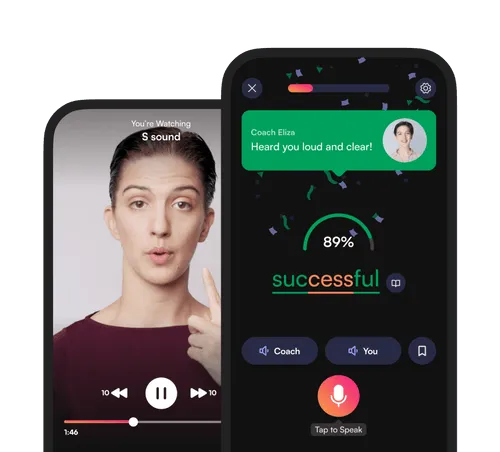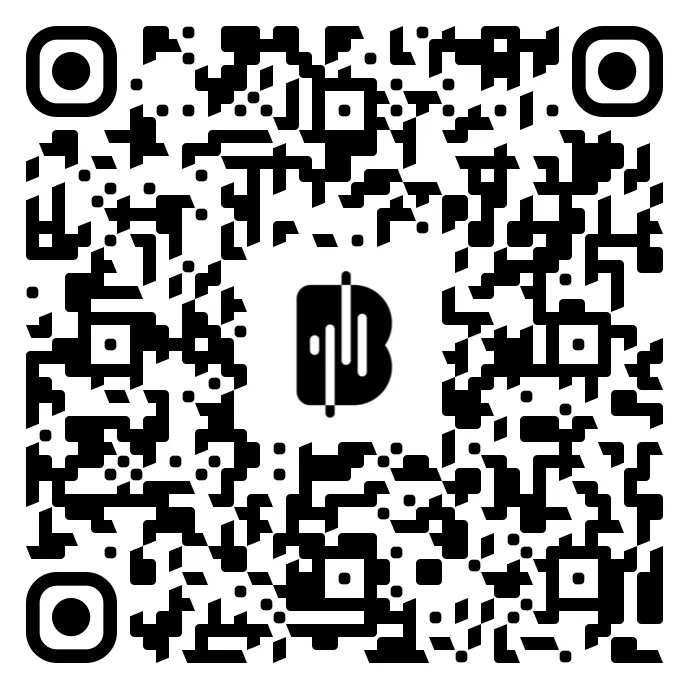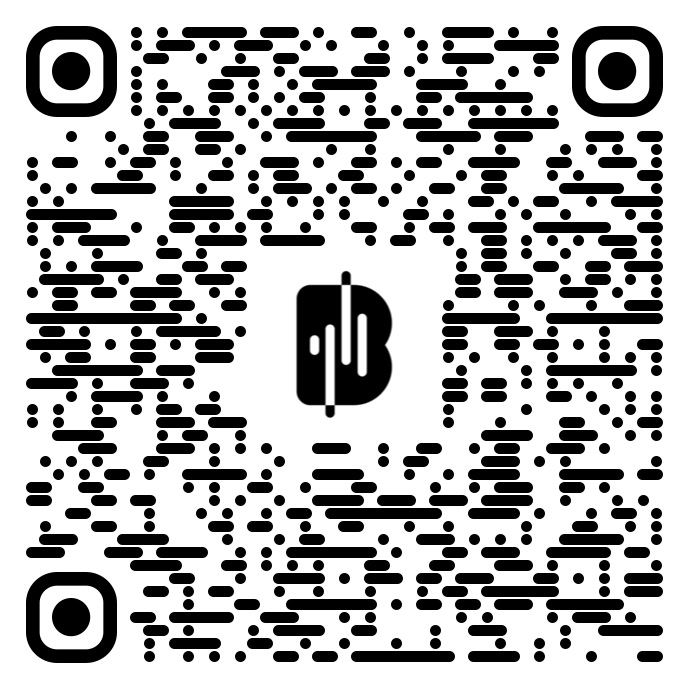Public speaking is difficult. It just is. And this is doubly true for non-native speakers!
The art of public speaking requires clear communication and engaging storytelling techniques to effectively convey a message. Even beyond the very common issue of stage fright, it's normal to worry about making errors while speaking.
Regardless, anyone can develop and master the art of public speaking with the right tools and lots of practice, and apps are one of the most effective tools for developing public speaking skills today. These apps can refine your speech , help you manage anxiety, improve gesticulation or body language , and train you to command a crowd with confidence.
While there are many available apps to improve public speaking, we’ve highlighted the 10 most effective ones to help you become a better public speaker. Explore the advantages and drawbacks of each one and begin enhancing your public speaking skills!
1. BoldVoice BoldVoice is at the top of our list for its highly-focused approach to helping speakers garner the skills confidence they need to address an audience with finesse. The BoldVoice app targets your American English pronunciation and overall accent, helping you to refine the intricacies of your speech to enhance your presentation skills.
This speaking app is designed by speech experts, and it uses voice recognition technology and AI-powered feedback to offer real-time guidance on pronunciation.
For instance, one feature of the BoldVoice app allows you to input your own text, which you can then record to receive instant pronunciation feedback. The app will break down each individual syllable , while also addressing the overall flow of your speech, helping you to practice presentations and develop a professional speaking style.
BoldVoice tackles difficult concepts like tone of voice and rhythm, providing hundreds of expert lessons to support your practice. Here, you’ll receive exercises tailored to each problem area in your speech.
On BoldVoice, you can simulate and practice real-life public speaking situations, record your practice sessions, and replay them to analyze your speech or track progress. This app is ideal for anyone preparing for public speaking engagements like presentations, job interviews , or public events.
Take your free accent assessment Get to know your pronunciation level and get 7 days of lessons for free on the BoldVoice app.
Start Free Trial
2. Toastmasters International App The Toastmasters International App allows users to learn and practice to become a better public speaker within a supportive community. This app also provides resources that can help you practice your speech structure, delivery, and vocal modulation.
Toastmasters is particularly valuable for its social element. It allows users to network and practice with other people virtually in a club-based structure. The app is a great starting point but it doesn’t offer advanced, AI-powered personalized feedback which sets some other public speaking apps apart.
Therefore, you might want to consider pairing the app with other resources if you want real-time analysis of your speech, perhaps for self-assessment or progress tracking.
3. Speeko If you’re looking for an app that offers a data-driven approach to public speaking, then Speeko is a good option. Speeko uses advanced technology to analyze your speech patterns to help you refine your speech delivery.
The Speeko app focuses on critical aspects like pitch, pace, and pauses. It can also help you create a personalized training plan that fits your goals and learning pace. Speeko’s data-heavy approach can, however, feel overwhelming for beginners who may prefer a simpler introduction to public speaking.
For example, Speeko uses graphs, charts, and analytics to show performance patterns, and this can be hard to digest if you’re a beginner. Regardless, Speeko is good for public speakers who want detailed feedback and advanced insights to polish their professional speaking style.
4. Orai Orai tackles one of the most common challenges many people face when addressing a crowd—stage fright. The app does this by incorporating feedback on your body language and facial expressions.
Orai’s voice recognition and AI-powered feedback further evaluates vocal tone, pitch, pacing, and eye contact and provides a comprehensive insight into your presentation style. Here, you can also practice with simulated scenarios and access a dashboard that lets you see how you’re improving over time.
This app is ideal for anyone looking to refine their overall presentation style, especially in the workplace. However, Orai’s subscription fees can be on the higher side, and this makes it less accessible for budget-conscious users.
5. Ummo Filler words tend to naturally find their way into your speeches and this is absolutely normal. However, they can become problematic when you use them too often.
Ummo detects, tracks, and provides personalized feedback on these filler words, helping you become more aware of a usage pattern. The app represents these patterns in visual graphs that show how well you’re doing at reduction over time.
Because Ummo focuses primarily on identifying and eliminating fillers, it can lack tools for overall speech organization. Therefore, if you want to sound polished and professional, this app is best complemented by other public speaking resources.
6. PromptSmart Pro Sometimes, speaking in public entails reading your speech directly from a script. While this might sound simple, it requires effort and skill to avoiding sounding monotone or detached.
PromptSmart uses voice-tracking technology to follow along as you read your script, helping you maintain a smooth flow without losing your place.
This app uses a teleprompter mode to customize text size, scrolling speed, and other options to match your reading style and conversational pace. PromptSmart Pro is especially useful for journalists, media presenters, and other professionals who deliver scripted content frequently.
The features in PromptSmart Pro are however limited to script-based practice and lack features for spontaneous or everyday speaking skills. If you want to develop a more flexible, conversational speaking style, this app might not do the job.
7. Speechmaker Like promptsmart, this public speaking app is ideal for people who plan to publicly read a script. Speechmaker targets mid-level to advanced speakers who are able to write and edit their own speeches.
The app has an in-built editor that would help you draft and edit texts in the app for organization and flow.
Speechmaker also includes recording and playback options, making it easy for self-assessment. But like we mentioned before, its editing interface may feel advanced for beginners.
Additionally, the app may lack guidance on basic techniques to help improve your overall speech .
8. Oratory Coach The Oratory Coach is an app designed to improve voice control by adding depth and a level of emotion to your speech delivery. This app guides you on how to vary pitch and tone for greater audience engagement.
Oratory Coach also has exercises for breath control and vocal warm-ups that can help improve vocal endurance and clarity. It’s a useful app if you aim to captivate your audience through effective vocal expression or add authority and strength to your voice.
This app doesn’t address speech content or structure, so users may need a supplementary tool for overall speech structure. Regardless, its features are great if you want to learn to effectively convey emotion and emphasis.
9. VirtualSpeech Using virtual reality technology, this public speaking app helps you practice speaking in realistic practice environments, such as conference rooms, interview panels , and networking events . These simulations can help you build confidence when you eventually stand in front of an audience.
VirtualSpeech also provides insights on gaze direction, pacing, and audience engagement. However, when using the app, you need VR hardware like headsets. The app doesn't function without these additional technologies, and acquiring them can become quite expensive if you don't already have VR tech.
10. Rhetoric Rhetoric brings traditional oratory techniques into the modern era, teaching users time-tested methods of voice control, storytelling, and audience engagement. It’s grounded in classical rhetoric principles, and this makes it a unique tool for those interested in mastering traditional speaking skills.
With this app, you can learn principles that have influenced great public speakers throughout history, build speeches that connect emotionally and logically with audiences, and hone your voice for maximum impact.
This app is quite limiting because it focuses specifically classical public speaking skills, which does not necessarily translate to all modern audiences. You might therefore find Rhetoric less practical if you prefer a contemporary or informal speaking pattern.
Choose the Right App for Your Public Speaking Needs Public speaking may be intimidating, but technology has made it so that you can become an effective speaker from the comfort of your own home. Each public speaking app we’ve highlights here has unique features, but you can select and combine a few to fine-tune your skills and meet your personal needs.
Whether formal, informal, scripted, or non-scripted, clear and confident pronunciation is the foundation of any effective speech. To help you achieve this, BoldVoice offers personalized pronunciation and accent training.
The BoldVoice app identifies your errors and guides you in correcting them until you’re pitch-perfect. Plus, for dedicated practice before the big day, BoldVoice has you covered with interactive exercises that simulate real-life speaking scenarios.
If you want to speak confidently and wow your next audience, then sign up on BoldVoice to claim your seven-day free trial gift and get started right away.









